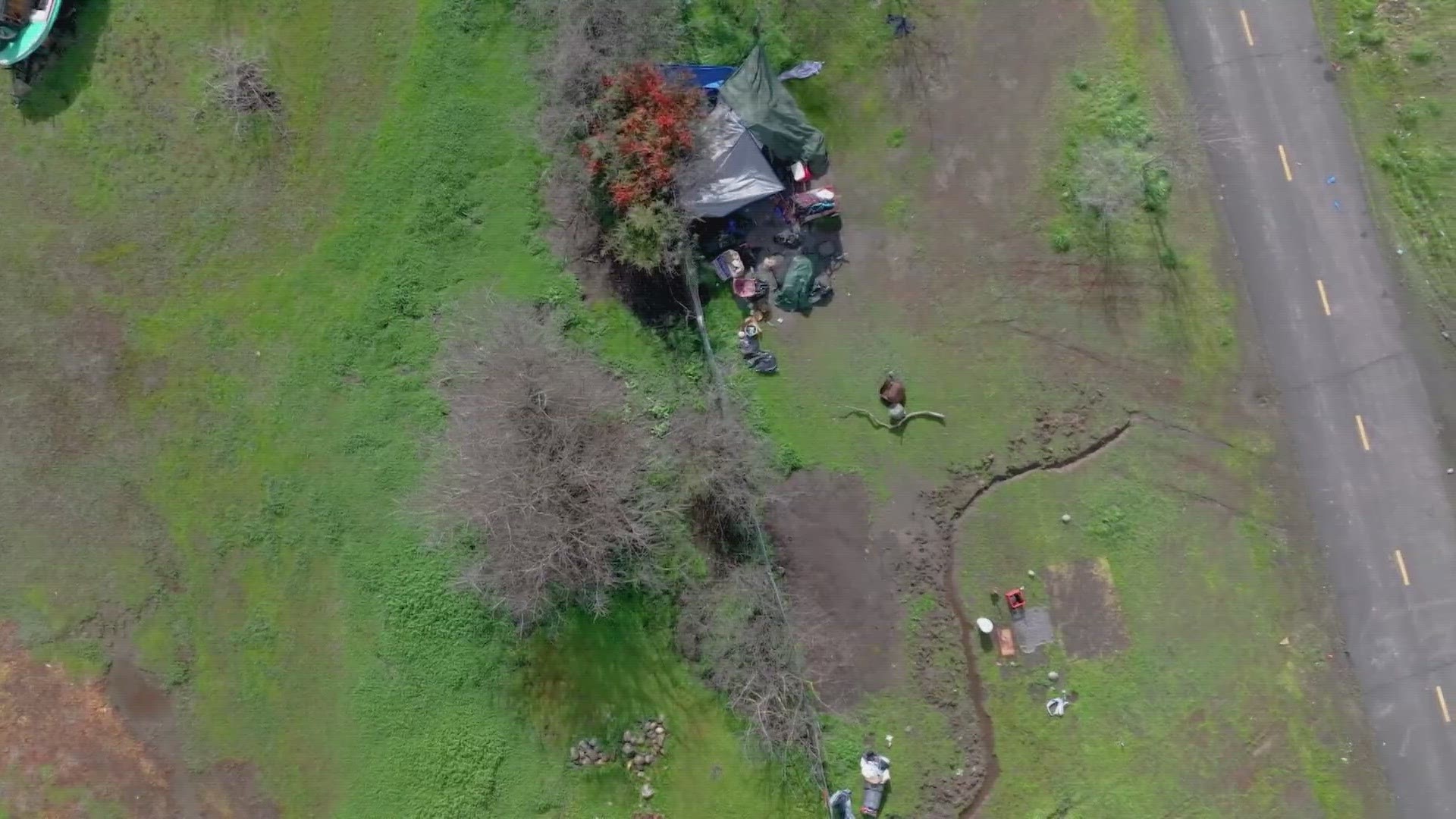SACRAMENTO COUNTY, Calif. — It’s been a little over a year since the city and county of Sacramento joined forces to address the homeless problem.
The goal of this team was to go directly to the unhoused with outreach and education.
On Tuesday, the Board of Supervisors and City Council looked at the agreement's impact on the community. Their presentation was a report card on what they’ve accomplished, and overall, they said 23 of their 28 goals were met.
On any given night across Sacramento County, there are more than 9,000 people living unhoused. It's a problem of epic proportions that could only be addressed with a groundbreaking agreement.
A team of 25 city encampment workers and 10 county mental health care workers had jobs to provide outreach, services, shelter, training, and information.
The agreement with the city of Sacramento and the county has been in effect for more than a year. At the Board of Supervisors meeting, team members showed they had met all their goals in outreach.
They visited more than 5,000 locations providing more than 27,000 services. They also met their goal of 10 encampment teams working within the city and visiting 20 large encampments a month.
“We’ve made a ton of progress. We have more shelter beds, more clinical staff, more outreach staff and we have a lot more to come,” said Janna Haynes, public information officer for the county's Department of Health Services.
While increasing the number of full-service programs, they did not get those programs coordinated with some behavioral outpatient health treatments.
Timothy Lutz, the director for Health Services, argues Sacramento is still doing better than the majority of the state.
“Only San Diego and Kern counties offer more full-service partnerships than us,” said Lutz.
Using the tiny home communities, the county met the goal of adding 200 additional beds. The city provided a site for their 200 beds.
The biggest gaps were with training and tracking their progress.
“Some of the goals we put forth initially sounded like something we needed immediately, but then we realized they didn’t necessarily make sense,” said Haynes.
According to the agreement, the county behavioral health workers were tasked with training newly hired workers from the city to address mental health concerns in the homeless community. However, the city has yet to hire clinicians for them to train.
In two weeks, there will be a report on the impact on the other cities in the county and the unincorporated parts of the county.
The Board of Supervisors also approved $12.8 million in state homeless grant funding Tuesday, $9 million of which went to emergency shelters.
WATCH ALSO:



















